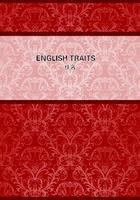
第60章
We walked with some circumspection, as if we were entering a powder-mill; but the door was opened by a mild old woman, and, by dint of some transmission of cards, we were at last conducted into the parlor of Mr. Morris, a very gentle person, with no hostile appearances. The statistics are now quite out of date, but Iremember he told us that the daily printing was then 35,000 copies;that on the 1st March, 1848, the greatest number ever printed, --54,000 were issued; that, since February, the daily circulation had increased by 8000 copies. The old press they were then using printed five or six thousand sheets per hour; the new machine, for which they were then building an engine, would print twelve thousand per hour.
Our entertainer confided us to a courteous assistant to show us the establishment, in which, I think, they employed a hundred and twenty men. I remember, I saw the reporters' room, in which they redact their hasty stenographs, but the editor's room, and who is in it, Idid not see, though I shared the curiosity of mankind respecting it.
The staff of the "Times" has always been made up of able men.
Old Walter, Sterling, Bacon, Barnes, Alsiger, Horace Twiss, Jones Loyd, John Oxenford, Mr. Mosely, Mr. Bailey, have contributed to its renown in their special departments. But it has never wanted the first pens for occasional assistance. Its private information is inexplicable, and recalls the stories of Fouche's police, whose omniscience made it believed that the Empress Josephine must be in his pay. It has mercantile and political correspondents in every foreign city; and its expresses outrun the despatches of the government. One hears anecdotes of the rise of its servants, as of the functionaries of the India House. I was told of the dexterity of one of its reporters, who, finding himself, on one occasion, where the magistrates had strictly forbidden reporters, put his hands into his coat-pocket, and with pencil in one hand, and tablet in the other, did his work.
The influence of this journal is a recognized power in Europe, and, of course, none is more conscious of it than its conductors.
The tone of its articles has often been the occasion of comment from the official organs of the continental courts, and sometimes the ground of diplomatic complaint. What would the "Times" say? is a terror in Paris, in Berlin, in Vienna, in Copenhagen, and in Nepaul.
Its consummate discretion and success exhibit the English skill of combination. The daily paper is the work of many hands, chiefly, it is said, of young men recently from the University, and perhaps reading law in chambers in London. Hence the academic elegance, and classic allusion, which adorn its columns. Hence, too, the heat and gallantry of its onset. But the steadiness of the aim suggests the belief that this fire is directed and fed by older engineers; as if persons of exact information, and with settled views of policy, supplied the writers with the basis of fact, and the object to be attained, and availed themselves of their younger energy and eloquence to plead the cause. Both the council and the executive departments gain by this division. Of two men of equal ability, the one who does not write, but keeps his eye on the course of public affairs, will have the higher judicial wisdom. But the parts are kept in concert; all the articles appear to proceed from a single will. The "Times" never disapproves of what itself has said, or cripples itself by apology for the absence of the editor, or the indiscretion of him who held the pen. It speaks out bluff and bold, and sticks to what it says. It draws from any number of learned and skilful contributors; but a more learned and skilful person supervises, corrects, and coordinates. Of this closet, the secret does not transpire. No writer is suffered to claim the authorship of any paper; every thing good, from whatever quarter, comes out editorially; and thus, by making the paper every thing, and those who write it nothing, the character and the awe of the journal gain.
The English like it for its complete information. A statement of fact in the "Times" is as reliable as a citation from Hansard.